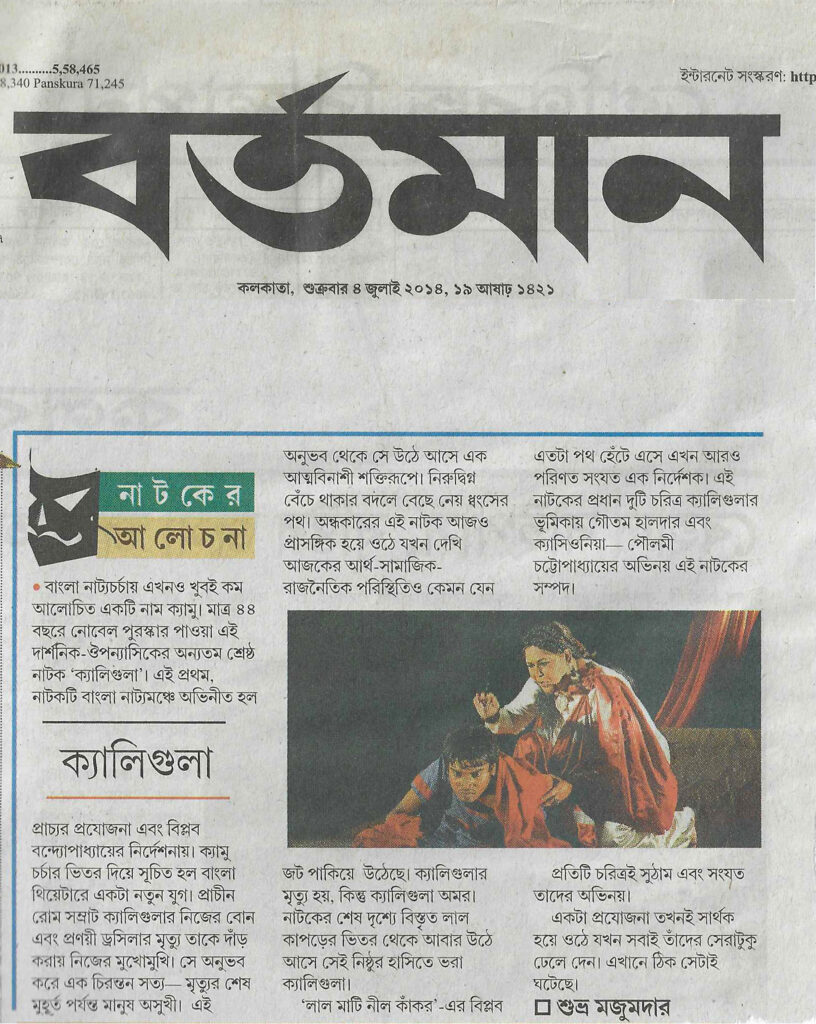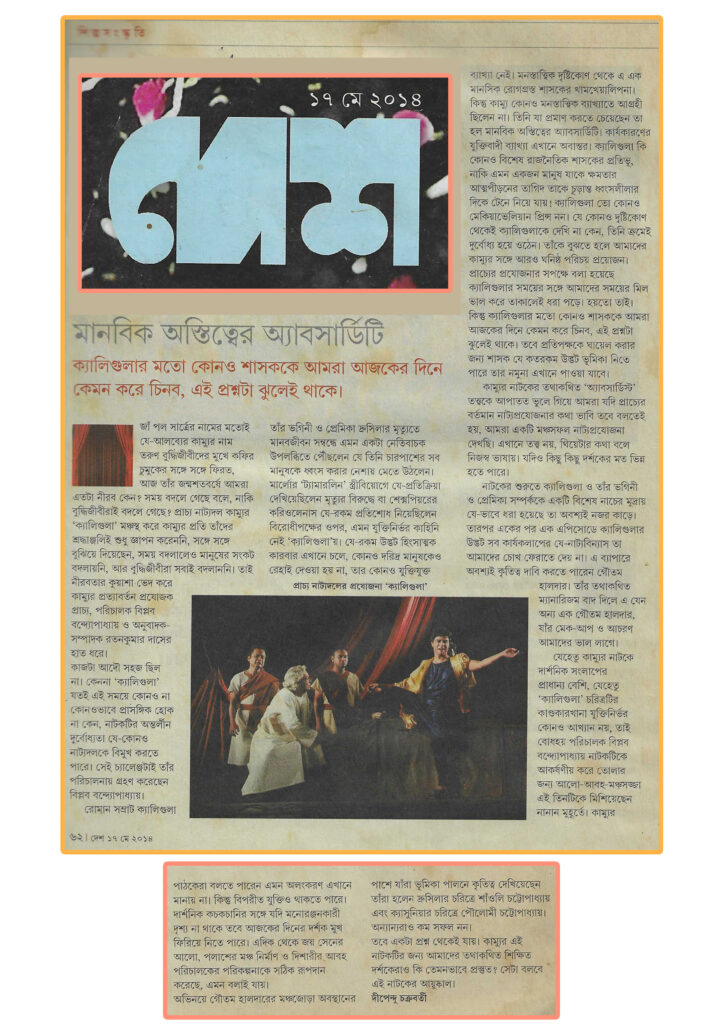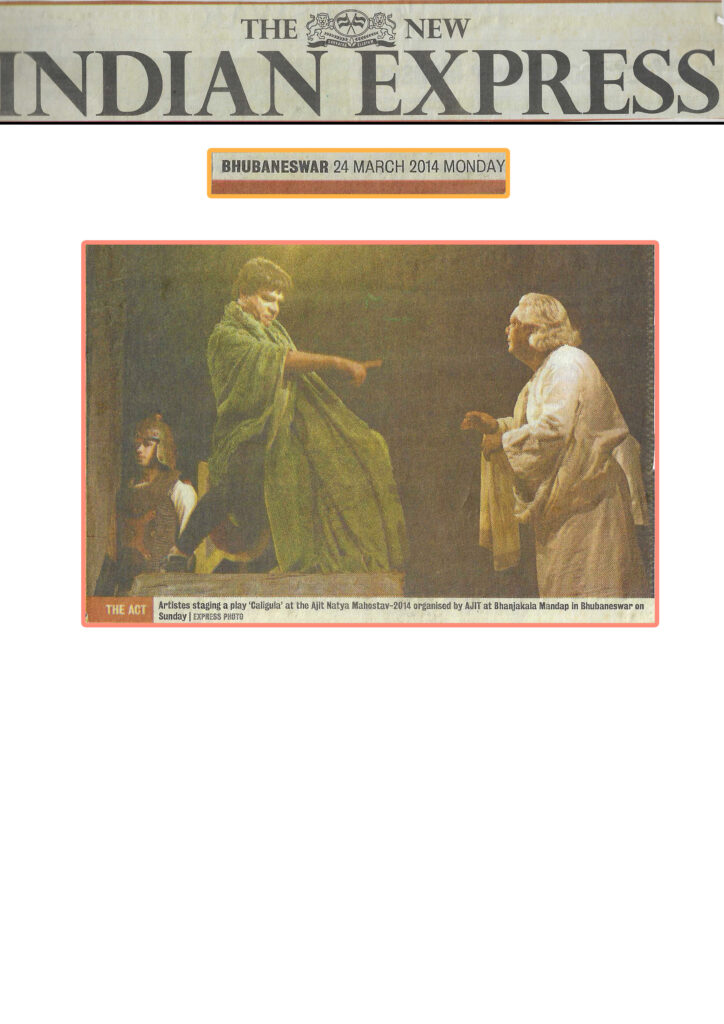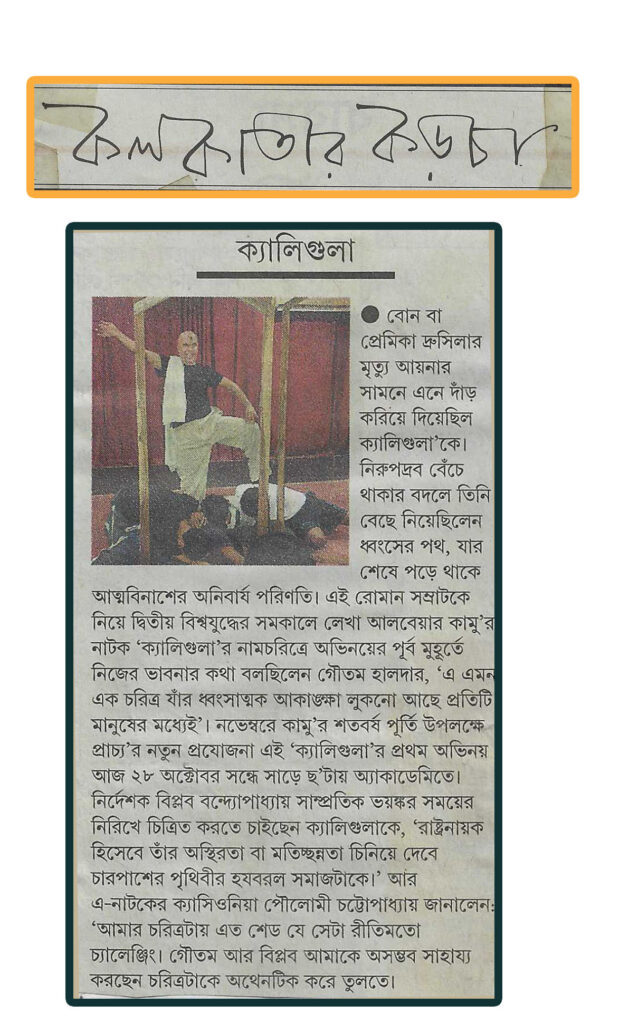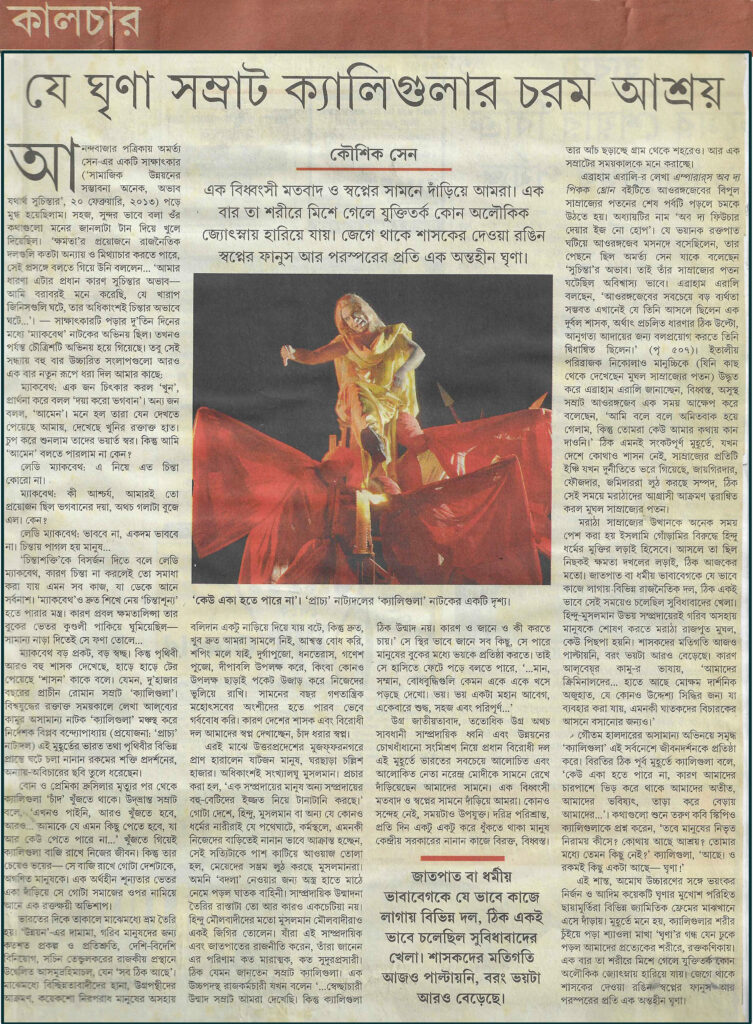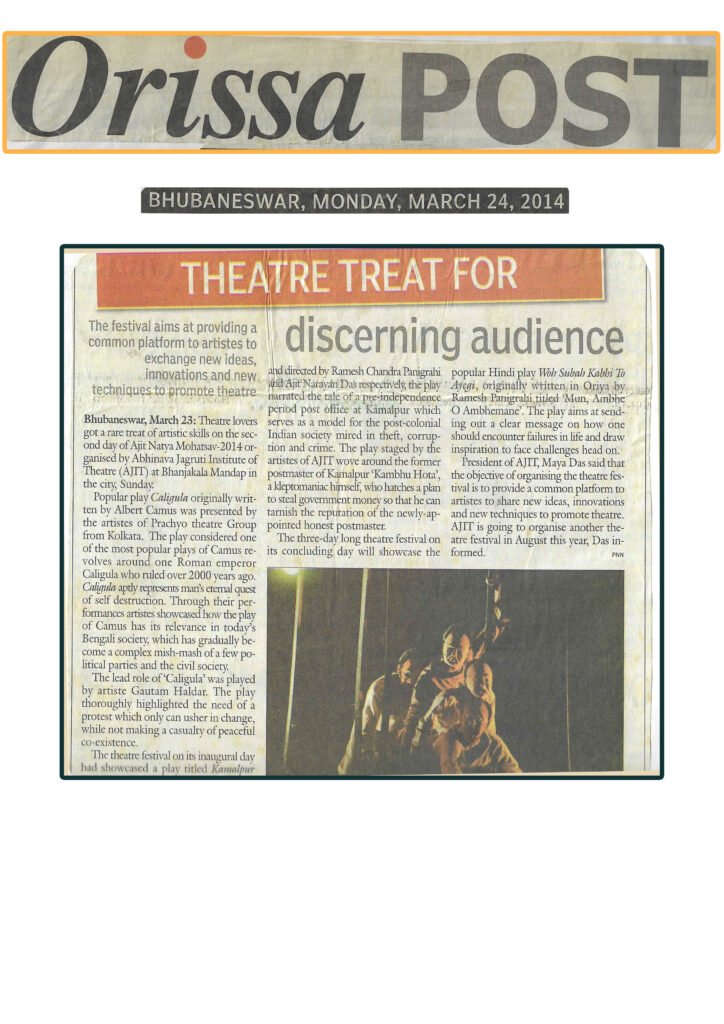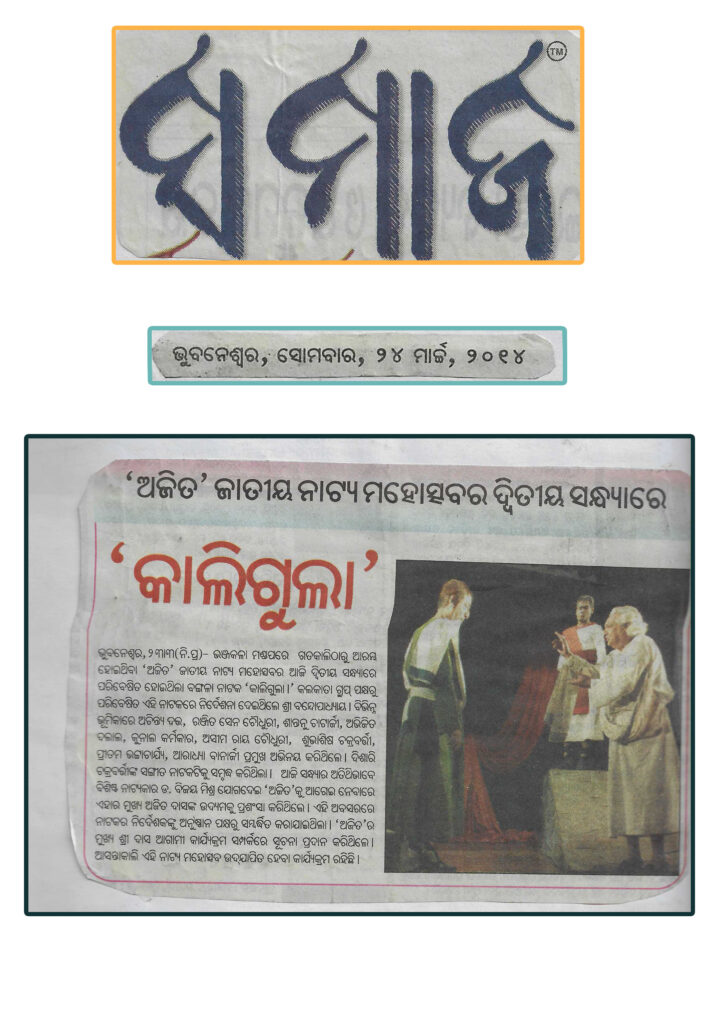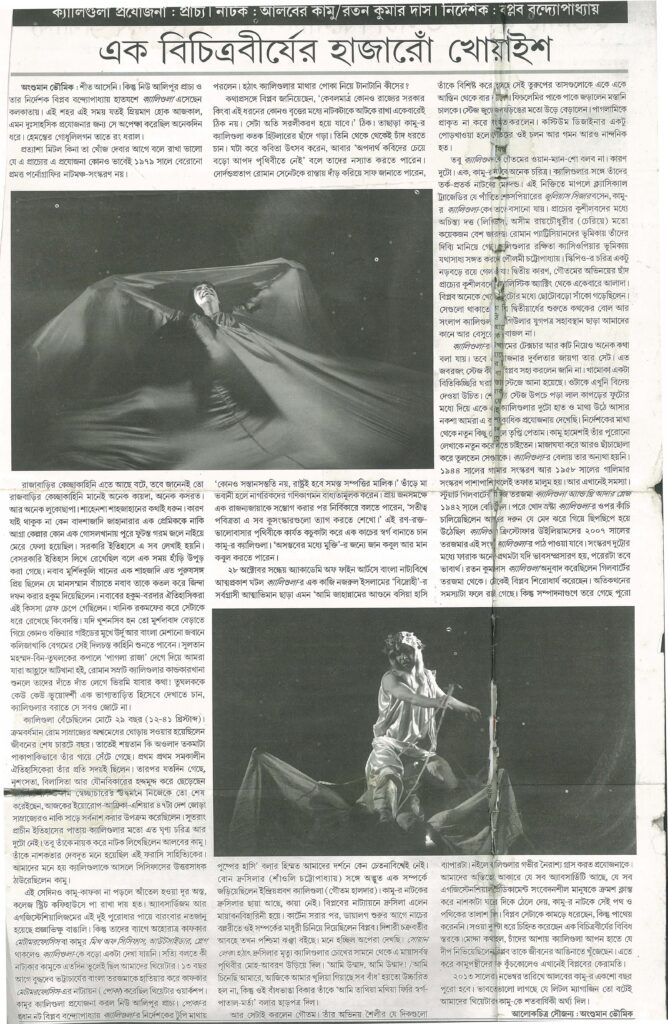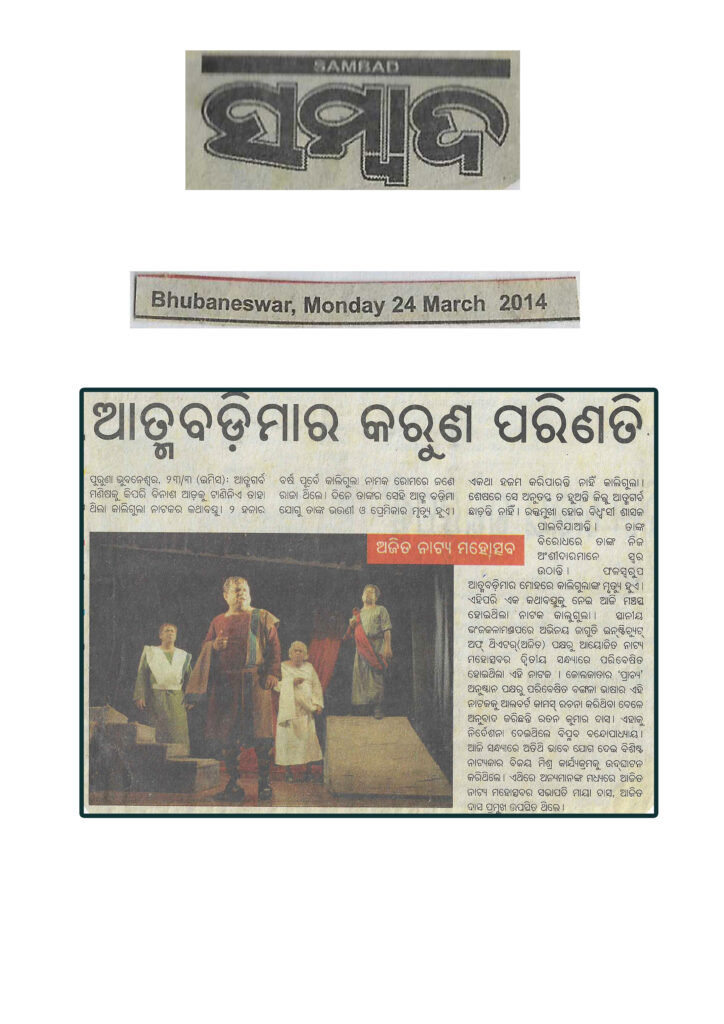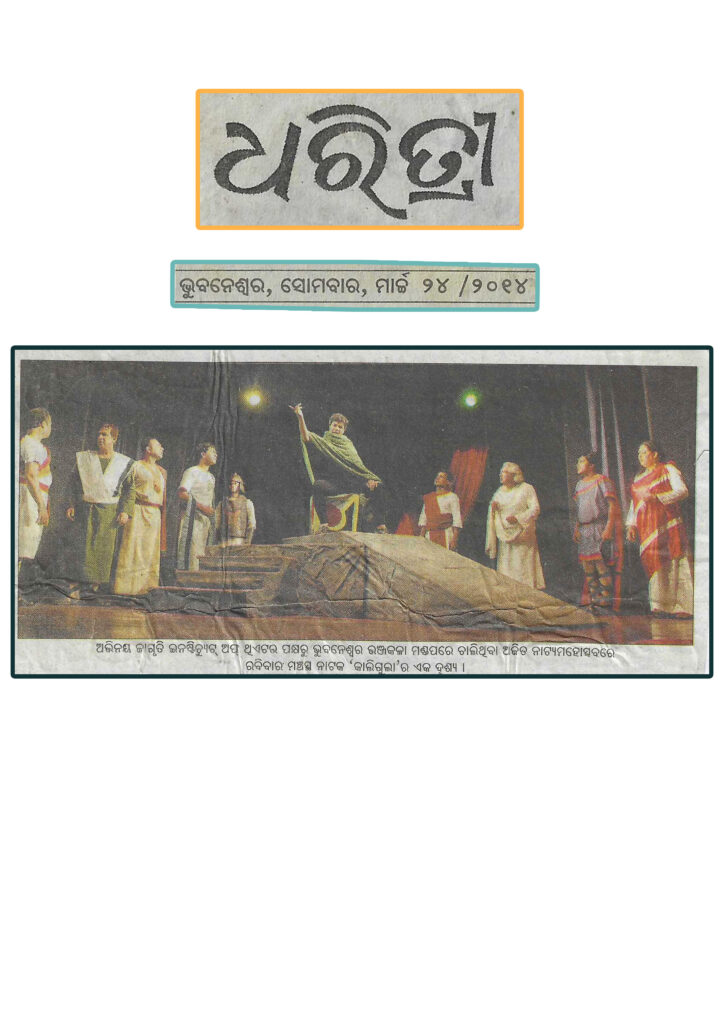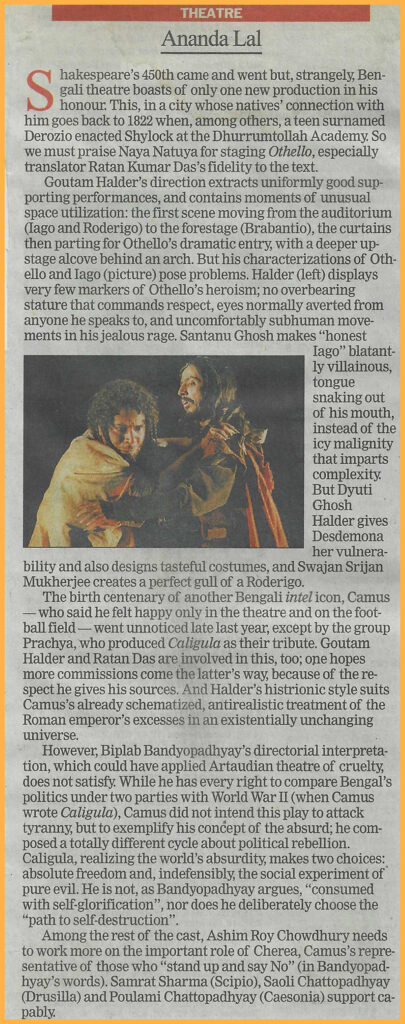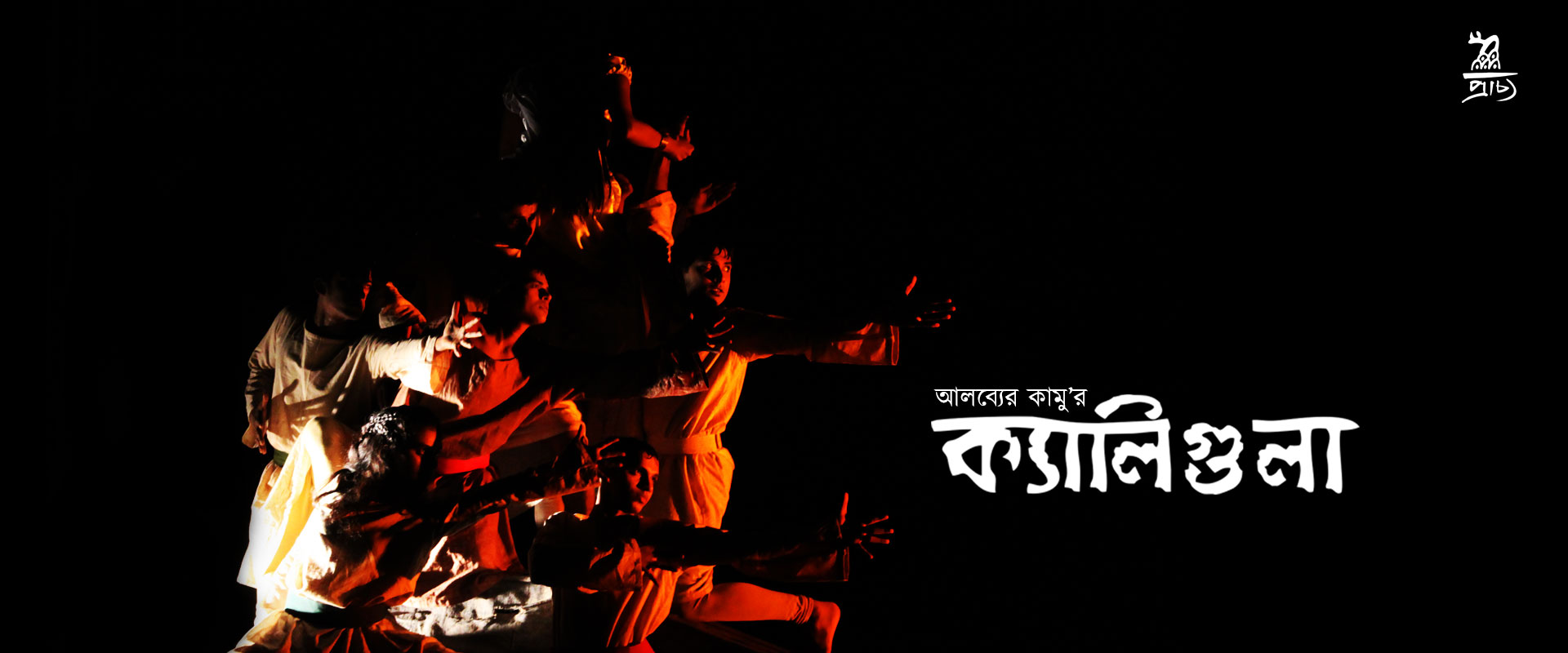
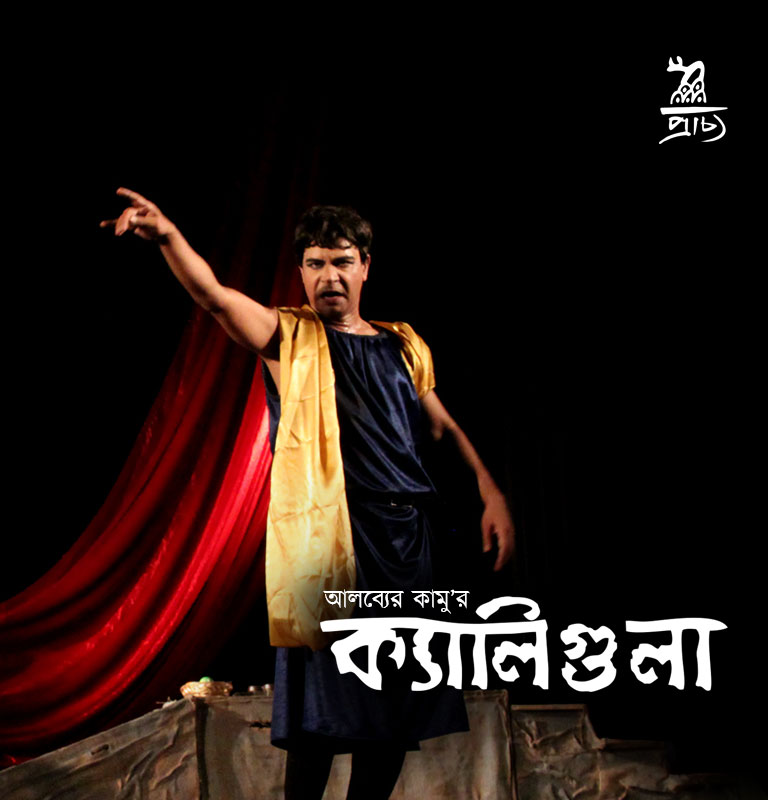
Caligula
Director's Note
Camus has spoken about two classes of offence,the first “emotionally driven offence” and the other “argumentative offence”. In this tricky time the leaders of the world and our nation are ruling us by restricting the interpretation of this word into these two phrases. The worldwide struggle to exhibit the blatant oppression,injustice,exploitation and massacre has attracted and inspired me and with every step I take as a human to play my part in this infinite process I discover that my endeavor is being shrudely and inexorabely being torn apart by our rulers. Nothing as it seems is out of their reach. Nothing is about disrupting the chain of power or going against it, everything is simply about the states and for the states. In the name of development the Adivasis or Ancient tribes can be ousted from their home of a thousand years, in the name of peace the innocent people of Afghanistan can be termed as terrorists and massacred unjustly. The power of classifying these transgressions under the two categories “emotionally driven offence” and “argumentative offence” is in the hands of our leaders only. This is a new and exclusive method of dictatorship taken up by our rulers.
There is a floating perception that artistes should be unmindful of the political murders and oppression existing in their states and be preoccupied with beauty and love. Political murders and oppression has to be challenged politically. Camus could not accept this concept in our society. He felt he had a voice which could be heard. One cannot stay ignorant of one’s present times. If one does then it is cowardice,slavery,much like refusing to accept the truth or one’s own mother. Man is definitely bound by his responsibilities and his social duties but his existence demands much more. The influence of law and religion worldwide is being moulded and exploited for political and financial gains. Camus’ “Caligula” is an honest and sincere effort to understand and grasp the complexity of our times. His arguments and his emotions hold relevance even today and we can compare them with our arguments with an eye on our historical times. Accepting or ignoring is influenced by our understanding of reality.
Synopsis
He would have been a hundred on 7th November, 2013 had he lived. But why on earth should he have lived beyond his 46th year… He didn’t… On the way to Paris from Lourmarin on 4th January, 1960, his speeding car skidded of the road and hit two trees one after another.
Albert Camus’ life ended when he was 46 years 9 months & 28 days old. But by this time he had already written novels like the Plague, The Outsider, plays like Caligula, philosophical essays like The Rebel and The myth of Sisyphus…Won a noble for literature at only 44.
The play “Caligula” is perhaps his most shining testimonial among all the plays that he wrote during the time frame of the Second World War. In this play Caligula an emperor in ancient Rome, two thousand years ago, represents mans eternal yet inevitable path to self destruction.
From a very unique and novel perspective Camus establishes his protagonist as a man consumed with self glorification and a twisted pride. The death of his sister and lover Drusilla forces him to confront himself and face his mirror image. Time takes his own inevitable course and Caligula realizes an eternal truth….That man is essentially unhappy and therefore ultimately incomplete….. A deep dark shadow wounds and scars Caligula deep inside his soul. Caligula chooses the path of destruction and devastation over a safe and comfortable existence, which ultimately leads to self annihilation. Dictatorial and blood thirsty, Caligula is killed by his high ranking patricians who conspire against him leading to his death.
Up until now this can called the central theme of the play. But death is not the last word for Camus’s hero. He does not even acknowledge his birth. “Our criminals are no longer those helpless children who pleaded love as their excuse….. On the contrary, they are adults and they have a perfect alibi, philosophy, which can be used for anything, even for transforming murderers into judges – “Camus wrote these lines 62 years earlier in his book the Rebel”
Today in the year of his birth centenary he has become even more relevant in Bengali society which has become a complex mish mash of CPM, Trinamul, pornography, civil society, intellectuals and common people. Wounded and bloodied by his inner conflict, Camus realized that to protest would be mankind’s only hope for the future……. A protest without a revolution was the only way to usher in change, while not losing one’s freedom. Sometimes we have to say No in certain situations… Not because we are intellectuals or philosophers, but just because we need to live a simple life, we need to simply exist. And this NEED needs to be expressed in the face of grim disapproval. To say No is to Revolt. Who is a Rebel? A man who says no, but whose refusal does not imply a renunciation…. We have read the first line of Rebel many times over, we have been excited by it and we have brought about a revolution discussing it over cups of coffee….But have we been able to stand up and say No? This thought is what prompted the staging of this play.
On Albert Camus birth centenary we at Prachyo offer our respectful tribute…
Premiered On: 28th Oct 2013
Cast
- Elder Patrician: Achinta Dutta/Krishnagati Chattopadhyay
- First Patrician: Ranjit Sen Choudhury/Asit Dey
- Second Patrician: Santanu Chaterjee
- Third Patrician: Abhijit Dalal/Subrata Bhattacharya
- Merie: Keshob Bhattacharya/Kaushik Ghosh
- Cherie: Asim Roy Chowdhury
- Helicon: Subhasish Chakraborty
- Skipio: Samrat/Aniruddha Sanpui/Kaustav Banerjee/Pritam Bhattacharya
- Intendent: Manas Mukherjee/Suman Majumdar/Raktim Mondal
- First Poet: Aniruddha Sanpui/Sandeep Debnath
- Second Poet: Pritam Bhattacharya/ Babin Das
- Third Poet: Aradhya Banerjee/Shatadal Chakraborty
- Fourth Poet: Keshob Bhattacharya/Gourab Bhatta
- Soldiers: Pritam Bhattacharya, Souvik Chakraborty, Gourab Bhatta, Prasenjit Chakraborty, Shatadal Chakraborty, Suman Majumdar, Mir Wasim Ali, Karna Chakraborty, Babin Das, Ankur Roy, Raktim Mondal
- Chorus: Nibedita Mukherjee, Aniruddha Sanpui, Souvik Chakraborty, Keshob Bhattacharya, Gourab Bhatta, Pritam Bhattacharya, Prasenjit Chakraborty, Shatadal Chakraborty, Suman Majumdar, Mir Wasim Ali, Sahely Sen, Priyanka Dey, Karna Chakraborty, Ankur Roy, Sandeep Debnath, Anindita Das
- Drusilla: Saoli Chattopadhyay/Ananya Bhatta
- Wife of First Patrician: Rinita Majumdar/Priyanka Dey
- Casunia: Poulami Chattopadhyay/Sumana/ Supriti Bhadra
- Caligula: Gautam Haldar
Credit
- Light – Joy Sen
- Music – Dishari Chakraborty
- Set and Costume Design – Kneel Koushik
- Set Requisition – Dipankar Ghosal (Palash)
- Set Construction – Ranjit Deb
- Costume – Sandip Sarkar
Technical Co-ordination
- Music Execution – Anindya Samajdar/Pramit Malakar
- Light Operation – Debashish Chakraborty
- Calligraphy – Arijit Banerjee
- Make up – Md. Israfil
- Choreography – Deb Kumar Paul
- Creative Associate – Sushovan Pramanik
- Photography- Uttam Mahali
Creators
- Playwright – Albert Camus
- Translator – Ratan Kumar Das
- Design and Direction – Biplab Bandyopadhyay
Reviews
